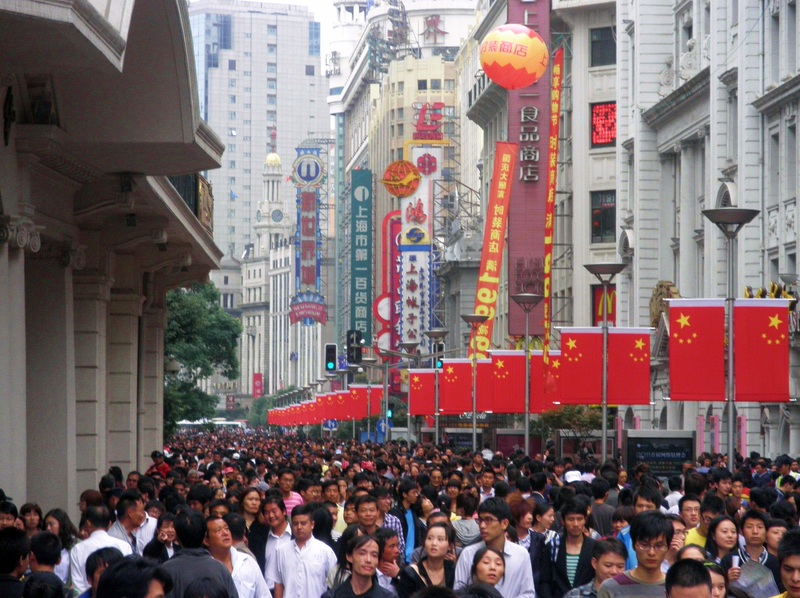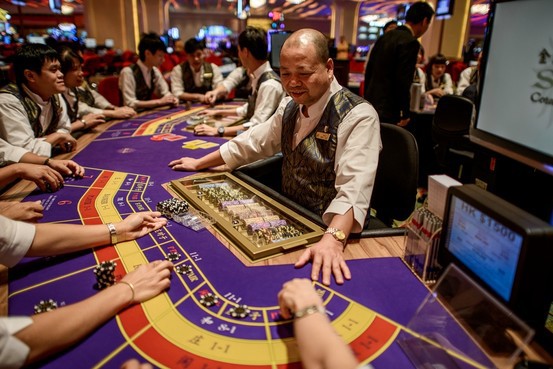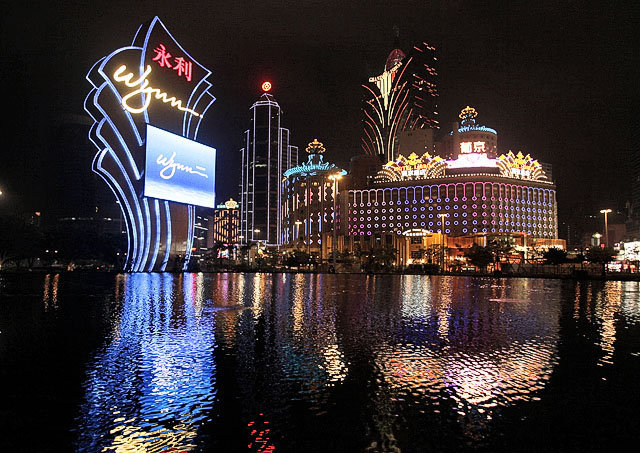






The Next Poker Boom May Happen In ChinaTexas Hold'em Slowly Taking Over As Poker Game Of Choice |
|
|
 Later this week, the World Poker Tour will be returning to the Hainan Province in China for the third rendition of WPT National China. The 19-event series features no-limit hold’em and pot-limit Omaha tournaments, with buy-ins ranging from $250 to $5,000 and clearly illustrates just how far poker has come in the last few years in mainland China.
Later this week, the World Poker Tour will be returning to the Hainan Province in China for the third rendition of WPT National China. The 19-event series features no-limit hold’em and pot-limit Omaha tournaments, with buy-ins ranging from $250 to $5,000 and clearly illustrates just how far poker has come in the last few years in mainland China.
With the world’s largest population of 1.35 billion people, China has always been on the focus of any forward-thinking poker company, but numerous barriers to entry have made the game a tough sell until only recently.
Now with poker catching on, online poker operators and live poker tours are racing to brand their products in a lucrative, emerging market.
Gambling Legalities In China
Under Chinese law, gambling is illegal, but what constitutes gambling varies from province to province. In mainland China, for example, the government operates two different forms of a lottery, but efforts made to bring casinos to the region have so far been unsuccessful.
Those in mainland China can gamble online, including online poker, however, the government has been known to block access to these offshore sites, despite their law having no jurisdiction.
Hong Kong operates similarly to mainland China gambling laws, but allows for the operation of the Hong Kong Jockey Club, which is an institution that oversees horse racing and other sports betting. As a testament to how popular gambling is in China, the non-profit organization is one of the largest taxpayers in Hong Kong and contributes $130 million annually to charity.
The only true place to gamble in China is in the former Portuguese colony of Macau, which legalized gambling in 1850. When the region was transferred over to the People’s Republic of China in 1999, gambling was essentially grandfathered in.
 In its 15-year Chinese history, Macau has grown into the world’s largest gambling market, bringing in more than $45.2 billion annually and offering casino games consisting of table games and slots, greyhound racing, sports betting and lotteries. Macau’s take is nearly seven times greater than it’s nearest competitor, the Las Vegas Strip, which only generates $6.5 billion in gambling revenue annually.
In its 15-year Chinese history, Macau has grown into the world’s largest gambling market, bringing in more than $45.2 billion annually and offering casino games consisting of table games and slots, greyhound racing, sports betting and lotteries. Macau’s take is nearly seven times greater than it’s nearest competitor, the Las Vegas Strip, which only generates $6.5 billion in gambling revenue annually.
Macau now has 33 casinos, some of which are operated by Las Vegas-based operators such as Las Vegas Sands. The largest casino, the Venetian Macao on the Cotai Strip, features 550,000 square feet of gambling space with 3,400 slot machines and 800 table games. To put this in perspective, the Venetian in Las Vegas is one of the largest casinos in the United States and only has 112,000 square feet of gambling space, with 2,400 slot machines and 139 table games.
History Of Poker In China
It wasn’t until the mid-2000’s that the Chinese got their first glimpse of poker as we know it thanks to American televised tournaments. The game interested a population that some would say is obsessed with gambling, but the Chinese were far more familiar with a form of the game known as tractor poker.
Tractor poker was so popular that it was even regulated by the China Leisure Sports Administration, which was integral in creating a set of unified rules for the game. Tractor poker is a team game that utilizes two decks of cards with jokers. The object is to win tricks using trump suits, similar to whist, contract bridge or spades.
Sensing an opportunity for growth, the WPT applied for and was granted a five-year license to televise the National Tractor Poker Tournament in the region in 2007. However, limitations with the game, especially for online play, brought the focus back to more traditional poker variations.
Macau began dealing poker in 2007 at the Galaxy Starworld Casino. A short time later, the first poker tournament in China made its way to Macau with the Asian Pacific Poker Tour. In 2008, other properties such as the Grand Lisboa Casino, Grand Waldo Casino and Wynn Casino began spreading the game as well.
 The Game Of Poker In China Today
The Game Of Poker In China Today
Poker exploded in popularity in Macau, creating games with the highest stakes in the world and waiting lists that took several hours to clear, but with no licensed and regulated casinos, mainland Chinese were forced to brave the gray area of offshore online poker sites, which often dealt with a foreign currency, or find one of a few running private games in their area.
In 2012, the WPT received approval from the China Leisure Sports Administration to change their tractor poker tournament to no-limit hold’em. As a result, the MGM Grand Sanya in the Hainan Province became the host of the first ever regulated hold’em tournament in mainland China. The $1,500 buy-in event drew 542 entrants and featured known players such as Phil Hellmuth, Johnny Chan and David Chiu.
The tournament series is now about to kickoff its third run and more and more players are turning out thanks to repeated showings of poker events on Chinese television. Additionally, some online poker sites have also started catering to the Chinese market, creating versions of the client in Chinese along with options for depositing and playing with the Yuan.
Chinese Poker Market Potential
Guesstimating the size of a Chinese online poker market isn’t an exact science, but one could look at the United States for a general idea.
A poll conducted by the Poker Players Alliance in 2007, the tail end of the poker boom, showed that roughly 2.6 percent of the adult population in the U.S., or about 15 million people, played online poker for real money. This market was worth approximately $1 billion annually to online poker sites.
 Conservatively speaking, if the same percentage of adults in China began playing online poker, there would be an influx of more than 25 million new poker players, generating a market of over $1.6 billion a year. Realistically, the numbers would be even higher since the Chinese wouldn’t have to suffer the burden of the U.S.-imposed Unlawful Internet Gambling Enforcement Act (UIGEA) deterring players.
Conservatively speaking, if the same percentage of adults in China began playing online poker, there would be an influx of more than 25 million new poker players, generating a market of over $1.6 billion a year. Realistically, the numbers would be even higher since the Chinese wouldn’t have to suffer the burden of the U.S.-imposed Unlawful Internet Gambling Enforcement Act (UIGEA) deterring players.
With the world’s largest population and a culture infatuated with gambling, it’s easy to see why an online poker site like PokerStars would invest so heavily in the region, bringing aboard pros such as Raymond Wu and Celina Lin to represent Team Asia. The WPT has been at the forefront of the live tournament scene in China, but has since been matched by the Asian Poker Tour and the Asia Pacific Poker Tour.
Over the last few years, the growth of live tournament poker in China and high-stakes cash games in Macau has shown that perhaps the Chinese are becoming more willing to relax their gambling laws and break through the wall that is currently keeping this promising market just out of reach.
